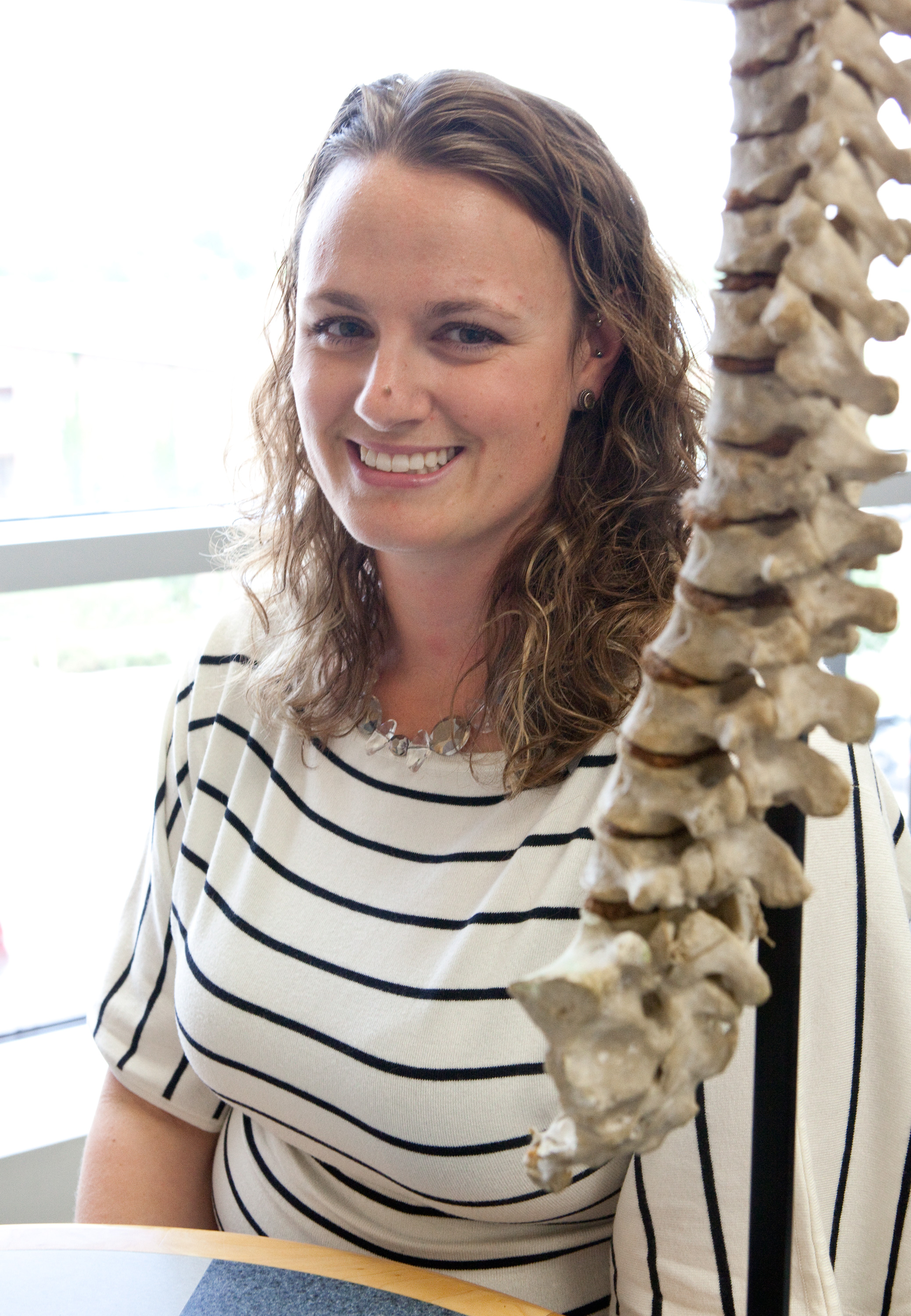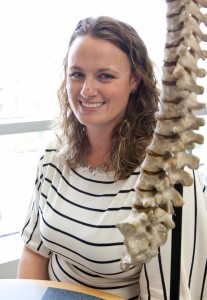Research Profile: Dr. Gregory


With a busy day ahead, most people are more attentive to the coffee in their hand than they are to the person behind the counter who handed it to them. Taking a closer look is Wilfrid Laurier University professor Diane Gregory, who is conducting a study on the demands of baristas. The study is focussing on a common complaint of coffee shop employees: low back pain.
“We wanted to take a look at what baristas actually have to do,” Gregory said. “How much of their day is spent doing the tasks that are associated with pain.”
Gregory looks at musculoskeletal low back pain, so when her friend mentioned he was experiencing back pain while working as a barista, her interest was piqued. She decided to examine the problem of back pain amongst baristas more deeply.
This is a new endeavour for Gregory, as she’s spent the last few years studying the causes of low back pain from a tissue perspective.
“I love tissue work,” she explained, “but it’s really nice to work with people, too. You have a closer chance of actually making an impact and being able to help people.”
Rather than working with tissue and animal models as in past projects, the study involves interacting with baristas. The first stage is a survey interview process. They’re hoping to speak with a minimum of 50 baristas.
“Once we have a baseline of how much back pain or shoulder pain is out there, we’re going to do a video analysis,” continued Gregory.
This will involve videotaping 20 baristas at work for roughly 20 minutes, ensuring the study is as non-invasive as possible. The video will then be analysed by a piece of custom software which calculates postural information and demands information on the joints.
“I think the problem with the job is that there’s a lot of standing and not a lot of movement of the back,” she commented.
Certain parts of the spine which don’t have blood vessels rely on the movement of joints to transport nutrients to tissues, making movement imperative.
“Variability is definitely your best friend when it comes to spine health,” Gregory said.
Two undergraduate students are assisting with the study: fourth year WLU Health Sciences student Eric Alcorn, and a student from McMaster University.
“I’ll be with them for the first little bit,” Gregory explained. “Then I’ll let them take the reins.”
Two grants are also funding the study: the WLU Undergraduate Research Assistantship, which Alcorn applied for, and the NSERC Discovery Grant Gregory received this past March.
According to Gregory, the majority of the data will be collected by the end of the summer with analysis transpiring in the summer and fall. Following this, they are aiming to have their research published and potentially presented at a conference. However, the study goes beyond academics.
“It’s ultimately the end goal to try to make change and make things better,” Gregory concluded.


